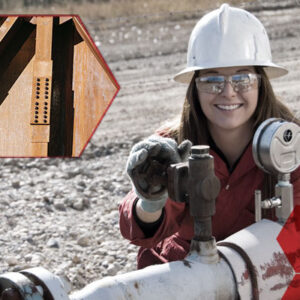Cathodic Protection Program Level 1 Course: What You Need to Know
Cathodic Protection is a technique used to control the corrosion of metal surfaces in contact with an electrolyte. It involves applying an external electric current to the metal surface. In India, the CORCON Institute of Corrosion is the official education licensee for AMPP (Association for Material Protection and Performance), and it offers the Cathodic Protection Level 1 course, also known as the Cathodic Protection 1 – Tester (CP1) course. After completing and passing the course, individuals can apply for the CP1 certification, provided they have completed the required work experience and agreed to the necessary terms and conditions.
The Cathodic Protection Level 1 course is designed to provide an overview of the principles of cathodic protection and its application to protect metal structures from corrosion. It offers theoretical knowledge as well as practical techniques for testing cathodic protection systems and analysing data to determine the efficiency of the Cathodic Protection program in place. Although there are no prerequisites to take the course, a minimum of six months of experience is required for the CP1 certification. Additionally, individuals who apply for certification after taking the course need to have a basic understanding of galvanic and impressed current systems.
The course is an intensive five to six-day programme that comprises classroom lectures and hands-on training on the use of various equipment and instruments required for Cathodic Protection testing. It is conducted at various locations across the country, and you can check the website for upcoming courses, registration details, and venues.
The Basics of Cathodic Protection Program Level 1 Course
The Cathodic Protection Program Level 1 Course is an entry-level course that provides participants with a comprehensive understanding of cathodic protection. The program is beneficial for anyone who is responsible for supervising cathodic protection systems, assessing the effectiveness of the cathodic protection system, and documenting the data collected in the prescribed format.
Though the course is designed for cathodic protection field personnel and technicians involved in cathodic protection systems, it is seen that engineers, technicians, and other professionals take this course to gain an understanding of cathodic protection systems. This course provides additional knowledge to professionals from various fields who gain valuable insights and skills in cathodic protection, which brings value addition to their core skill set and opens up new avenues for professional growth.
The course covers the basic principles of electricity, electrochemistry, corrosion and the theory behind cathodic protection. If you take the course, you will gain an understanding of the fundamental principles of cathodic protection. How electrochemical reactions lead to corrosion, and how cathodic protection systems prevent the formation of corrosion.
You will also gain an in-depth understanding of the different kinds of cathodic protection systems, namely, the sacrificial anode and impressed current systems and their curing mechanisms, understand how the flow of an electric current between two metals affects corrosion and how to conduct tests to detect and identify problems in cathodic protection systems. You will get to practically use various instruments and perform a variety of tests on the field, such as structure-to-soil potentials, voltage and current measurements, soil resistivity, pipe/cable locating, and rectifier readings to gain hands-on experience.
The course also covers Cathodic Protection components such as impressed current systems, galvanic anodes, and test stations. As a participant, you will learn how to read shunts and use them in rectifiers, bonds, and anodes. You will also learn how to conduct periodic surveys to confirm the effectiveness of a CP system.
The course covers the use, maintenance, and precautions for reference cells and how to do basic location mapping, report preparation, and record keeping. Safety issues related to CP will also be covered. Finally, you will learn about code requirements related to cathodic protection.
Why You Need to Take Cathodic Protection Program Level 1 Course
If you’re a professional involved in cathodic systems, responsible for collecting or recording data, supervising or measuring cathodic protection systems, then taking the Cathodic Protection Program Level 1 Course is essential. The course equips you with the knowledge and skills necessary for testing, evaluating data and determining the effectiveness of the cathodic protection system. The course also provides hands-on training to help you gain practical experience using equipment and instruments for cathodic protection testing.
The Cathodic Protection Program Level 1 course enables technicians to test the CP system and record data efficiently and effectively. This helps to identify deviations from set standards and specifications, allowing for timely corrective action to maintain the integrity of the cathodic protection system.
Cathodic protection systems protect valuable national and commercial assets such as underground storage tanks, pipelines running under the soil or sea, ships, and other offshore infrastructure from corrosion. The CP Level 1 course is an excellent option for those looking to advance their prospects in this field or already working offshore or in an establishment with a cathodic protection program in place. In addition, the course serves as an excellent entry point for individuals seeking to enter the field of cathodic protection.
A Comprehensive Guide to Cathodic Protection Program Level 1 Course
Cathodic protection is an effective method of preventing corrosion, and it relies on an electric current to do so. When two different metals are in contact with each other in an electrolytic solution, a galvanic cell is formed, and the process of corrosion begins. One metal acts as an anode and corrodes away, while the other metal becomes a cathode and remains protected from corrosion. In a cathodic protection program, the soil or the sea where the structure is based acts as an electrolyte structure to be protected acts as a cathode.
The Cathodic Protection Program Level 1 Course is a beginner-level course that teaches the fundamental principles of cathodic protection and provides comprehensive training on the equipment and techniques used in cathodic protection systems.
Participants in the course learn about the electrochemical reactions that cause corrosion and how cathodic protection works to prevent it. In addition, the course covers different types of cathodic protection systems, their installation, and maintenance. This five-day course includes classroom lectures and practical training, and participants learn how to monitor and maintain cathodic protection systems effectively.
The course is ideal for individuals with no knowledge of cathodic protection and who want to get into this field, or for personnel already involved in cathodic protection systems who want to advance their knowledge and understanding of the processes involved.
Cathodic protection specialists with years of experience and deep knowledge of the subject and who are trained and qualified to instruct and conduct the course. They use a variety of teaching methods, including lectures, case studies, discussions, and practical exercises, to provide a comprehensive learning experience for the students.
The course provides a basic understanding of cathodic protection systems and their use in different situations. Additionally, participants learn in detail about the different parameters that affect the performance of cathodic protection systems. One of the significant benefits of the course is that it prepares individuals to take the CP Level 1 certification exam and enjoys worldwide acceptance across industries and countries.
It is highly valued in the oil and gas, petrochemical, and other offshore industries. The certification opens up various job opportunities for individuals looking to make a career in the industry. To receive the course completion certificate, individuals must successfully pass each learning assessment and practical exam given on the last day of the course. They must also complete the Ethics for the Corrosion Professional Course or equivalent training, agree to the terms of service, and gain a minimum of six months of experience in the field before applying for the CP Level 1 certification exam.
In conclusion, the Cathodic Protection Program Level 1 course is an ideal entry-level program into the world of cathodic protection. It provides valuable training for anyone interested in cathodic protection and a solid foundation in the principles and practices of cathodic protection. If you want to make a rewarding career in this field, this course will equip you with comprehensive knowledge and skills in cathodic protection.
What to Expect from Cathodic Protection Program Level 1 Course
If you’re interested in pursuing a career in cathodic protection, a Cathodic Protection Program Level 1 course may be a great starting point. This course provides a strong foundation in the basics of cathodic protection, but it’s important to note that it won’t make you an expert in the field overnight. Cathodic protection systems are complex and require years of training and experience to master. However, upon completion of the course, you’ll receive a certification from AMPP, one of the leading bodies in the world for the protection of materials against corrosion. This certification holds immense value and enjoys global recognition and acceptance.
One of the benefits of completing a Cathodic Protection Program Level 1 course is that it can open doors to entry-level job opportunities at offshore sites such as oil wells, oil rigs and drilling platforms. If you’re passionate about the sea and want to work in these areas, this course can provide you with the necessary knowledge to get started.
It’s essential to note that to become an expert in the field, you need years of experience and advanced certifications. The CP 2 – Cathodic Protection Technician or CP 3 – Cathodic Protection Technologist courses offer advanced cathodic protection certifications with CORCON India.
During the five-day Cathodic Protection Program Level 1 course, you can expect to learn the theory and practical experience on the use of various equipment, knowledge regarding how to conduct various tests, and how to record the data collected from the tests and how to identify deviations from the set standards.
You’ll be taught by experienced and knowledgeable experts who possess expertise in the field of cathodic protection and receive hands-on practical training on the use of various equipment. This direct training provides you with the knowledge and confidence to conduct various kinds of tests by yourself on the field. In addition, during the course, you’ll have to pass learning assessments that are conducted as a part of the course. This is to ensure that each individual who takes the course gains the necessary knowledge and skills.
In conclusion, taking a Cathodic Protection Program Level 1 course can provide you with a strong foundation in the principles of cathodic protection and open doors to entry-level job opportunities. The CORCON Institute of Corrosion offers the best course for cathodic protection in the country. It is one of the most highly recommended courses for professionals in the field of cathodic protection. Whether you’re new to the field or have some experience, the course will provide you with the knowledge and skills you need to design, install and maintain cathodic protection systems effectively. With the demand for skilled professionals in this field expected to grow in the coming years, investing in your education through a Cathodic Protection Program Level 1 Course is a wise choice.
Image Reference: Freepik
Disclaimer: All trademarks, logos, and brand names are the property of their respective owners. All company, product, and service names used in this website are for identification purposes only. Use of these names, trademarks, and brands does not imply endorsement.











